Hazel Press, Cambridge
Perdendosi is a collaborative work by photographer Norman McBeath with Edmund de Waal. It is a study of leaves at the stage of their transformation when they have lost all colour, and become more like parchment than plant, taking up the most extraordinary shapes, giving the leaves unique identities and character. Many of the photographs were taken at the start of the pandemic in a time of daily news of increasing deaths and infections. Although not a direct response, this time had a profound influence on how Norman McBeath saw the leaves. Edmund de Waal’s accompanying text ‘Twelve Leaves’, which he describes as both autobiography and a journal of reading, is his own unique and moving response to living with these images for several months during lockdown. With a heightened awareness and increased sensitivity towards the natural world, Perdendosi offers a fresh perspective on the familiar.
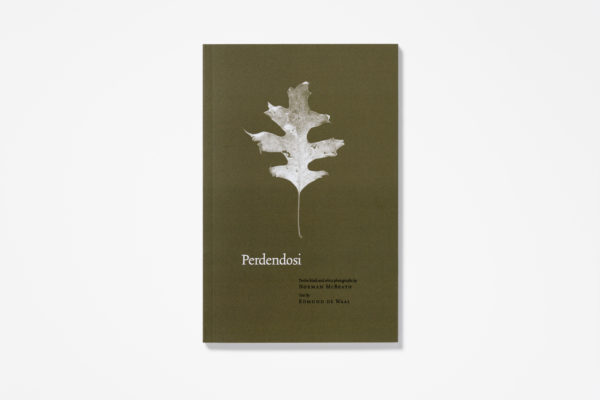
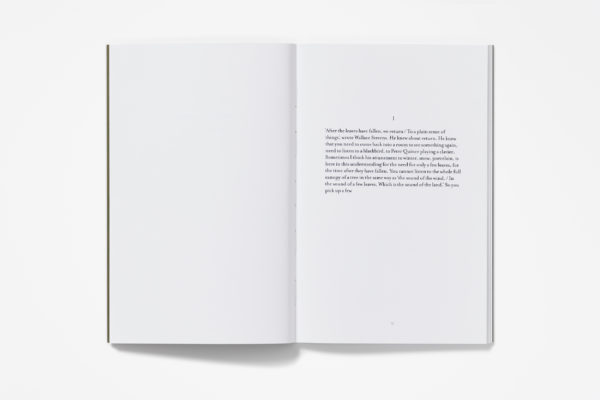
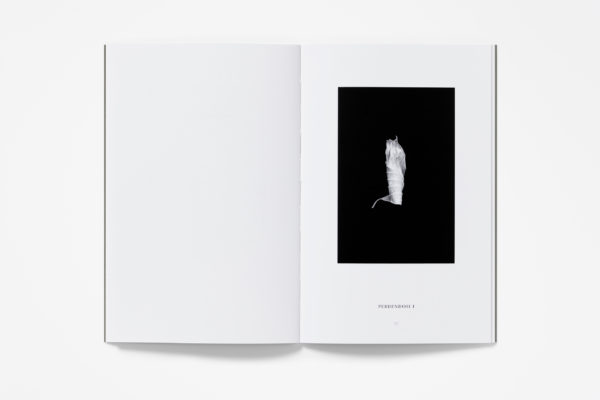
Cuckoo Press, London
Published by The Cuckoo Press, based at John Sandoe Books, London, this book touches on shards, an unfortunate eighteenth century potter called Nicholas Crisp and the fragments that Robert Walser used to make his stories.
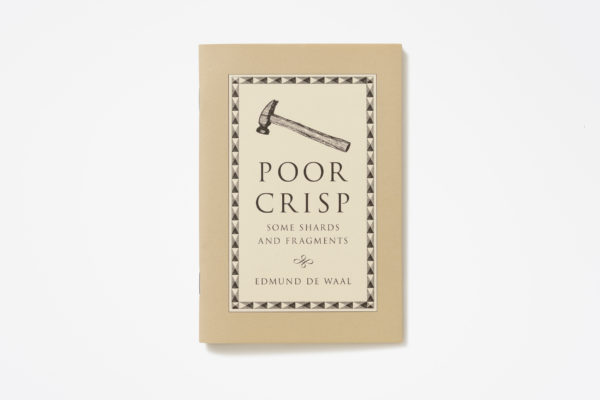
Musée des Arts Décoratifs, Paris; Chatto & Windus, London
Letters to Camondo is a haunting sequence of imagined letters to the Count de Camondo – the owner of a Parisian palace filled with beautiful objects, turned into a memorial for his lost son.
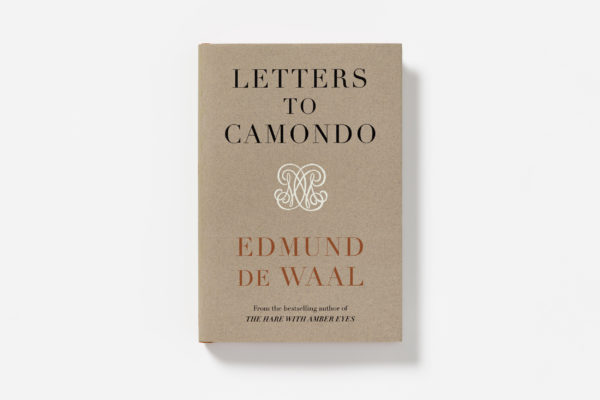
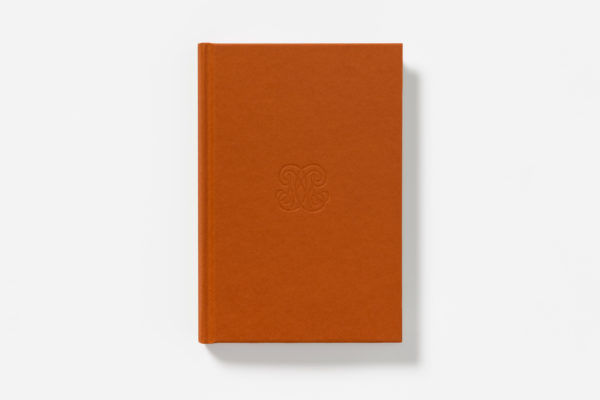
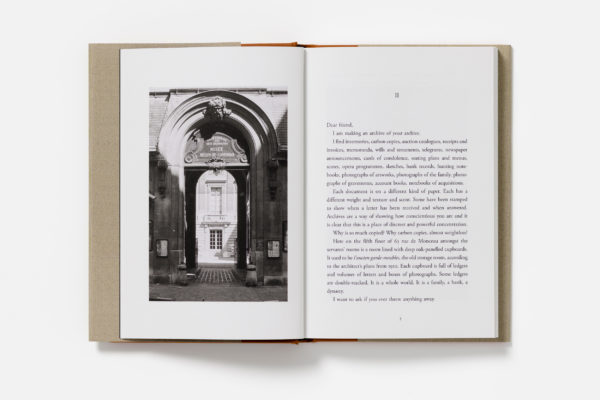
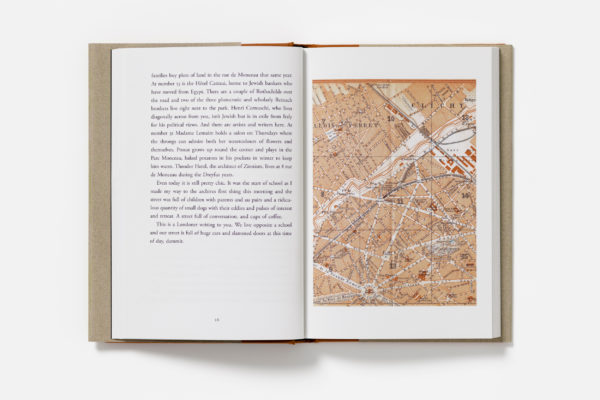
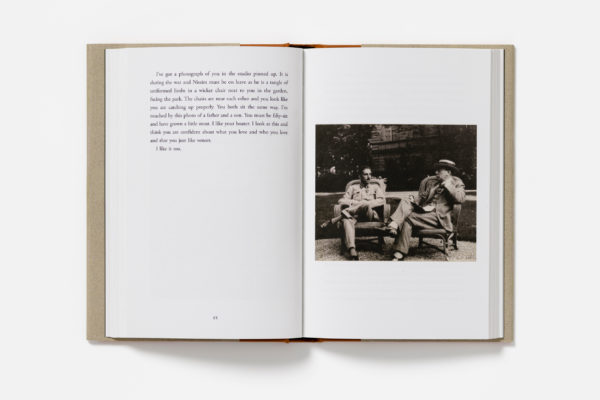
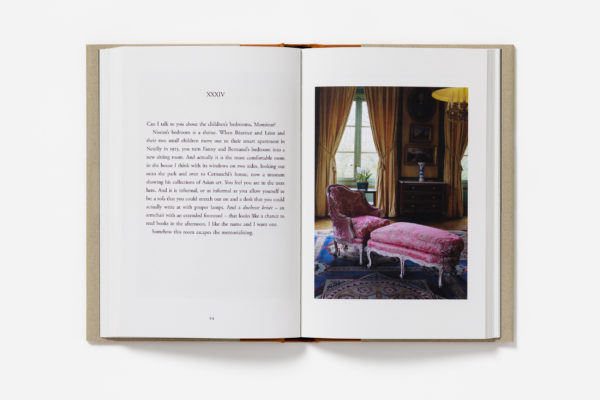
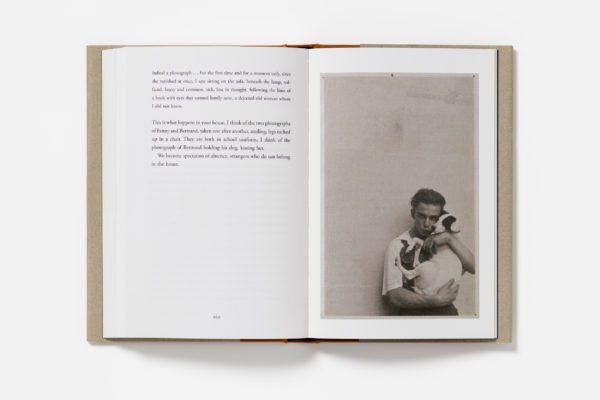
Wunderkammer Press, Bath
wavespeech is an artist-signed and numbered publication in a limited edition of 200 that celebrates the collaboration between between Edmund de Waal and David Ward at the Pier Arts Centre, Orkney.
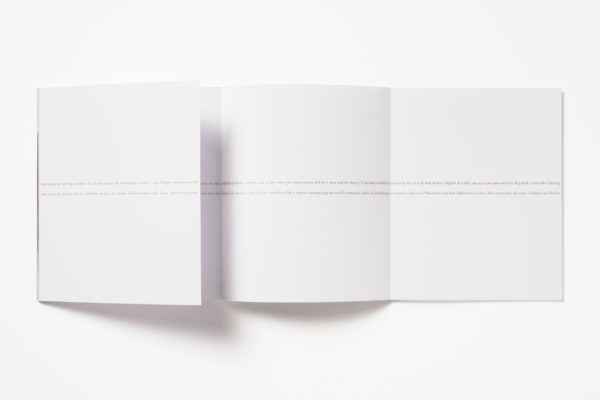
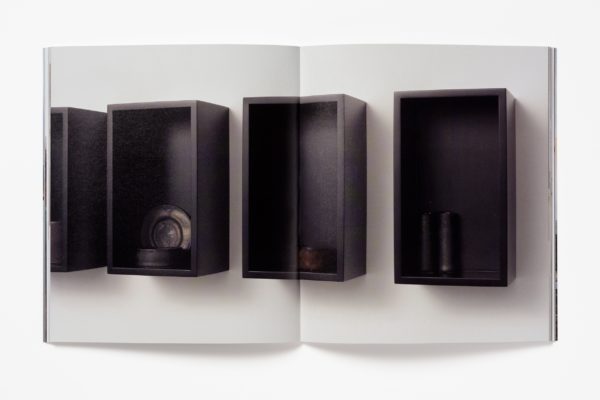
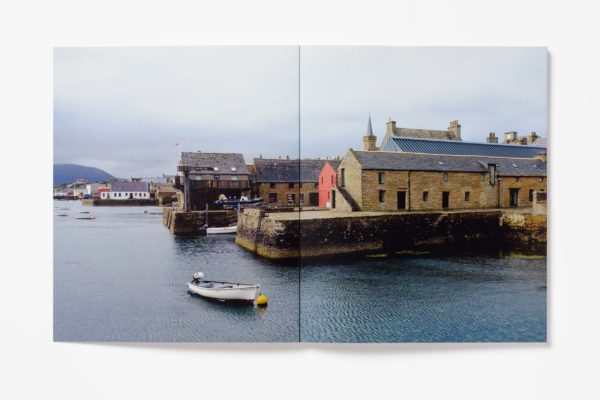
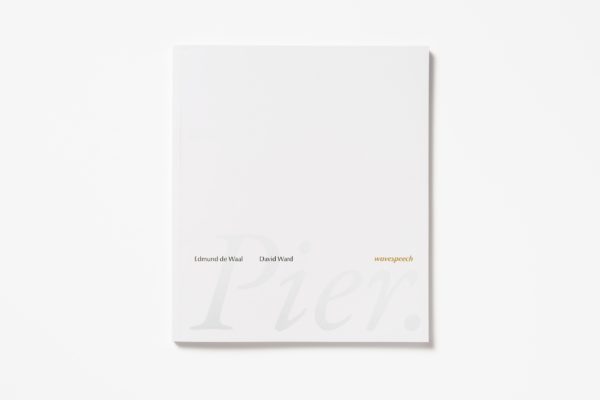
Chatto & Windus. London; Farrar, Straus & Giroux, New York
De Waal's second book, The White Road was published by Chatto & Windus in 2015 and was aired on BBC Radio 4's Book of the Week. It follows de Waal's journey to discover the history of porcelain, from porcelain first made in the hills of Jingdezhen in China to the first makers of English porcelain, William Cookworthy and Josiah Wedgwood.
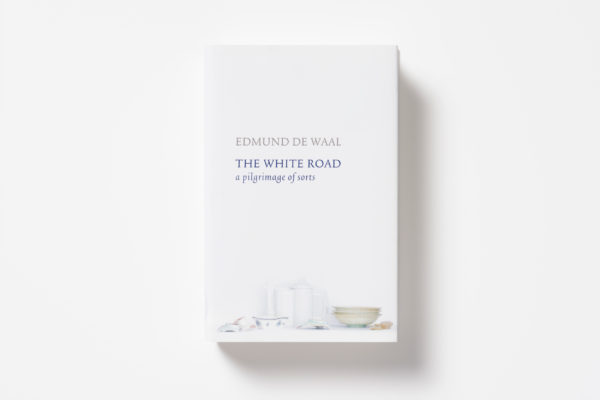
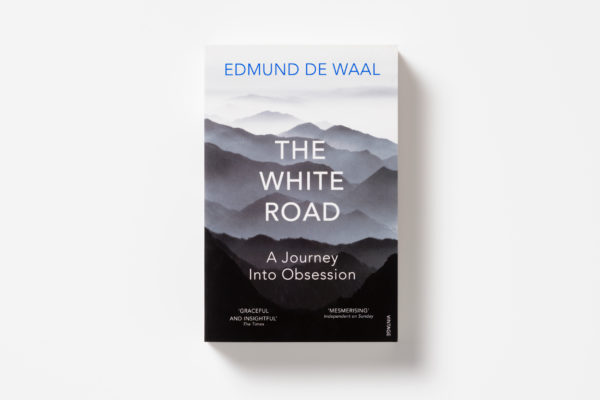
Phaidon, London
The most comprehensive survey of Edmund de Waal's career to date. Texts by Emma Crichton-Miller, Colm Toíbín, Peter Carey, A.S. Byatt, Alexandra Munroe, Deborah Saunt and Edmund de Waal.
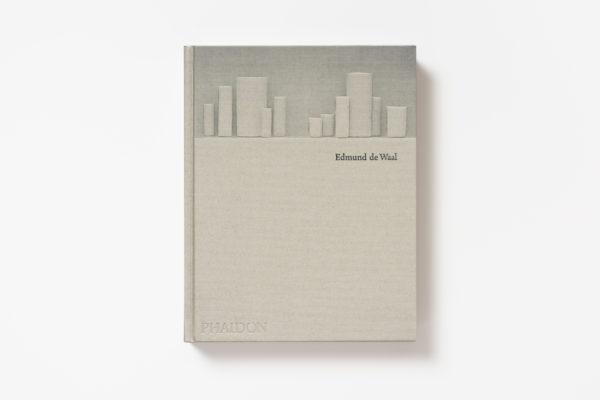
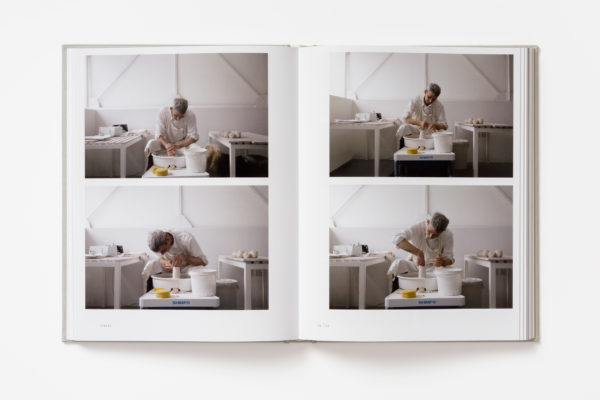
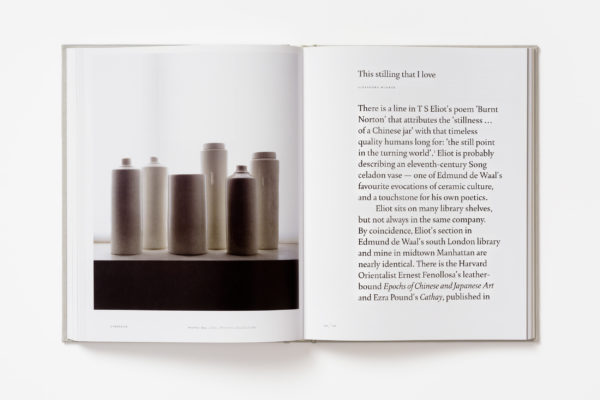
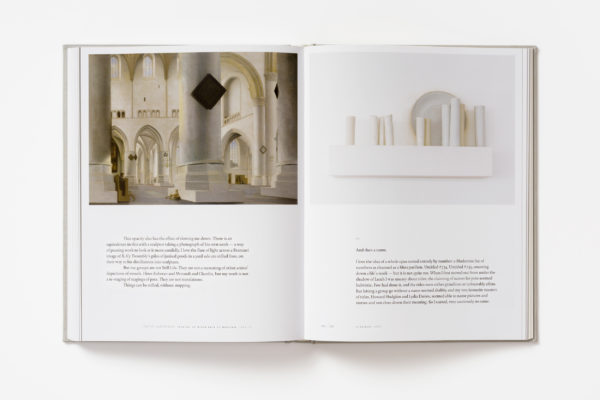
Phaidon, London
This visual anthology of 300 ceramic vessels reveals this to be a magnificent truth. Pots are some of the very earliest artefacts created, and the span of our cultures can be traced through bowls and vases, dishes and beakers, made, glazed and decorated with lyricism and with vigour. They have been made to celebrate rituals of birth, marriage and death, and to be part of the rhythm of our solitary and our social times of eating and drinking. This book shows how inexhaustible the vessel has been for potters, sculptors, artists, designers and architects.
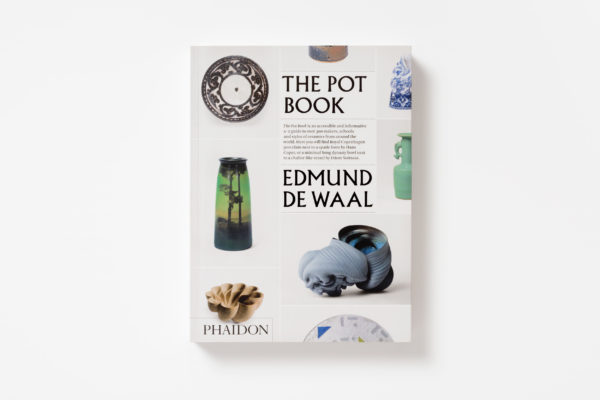
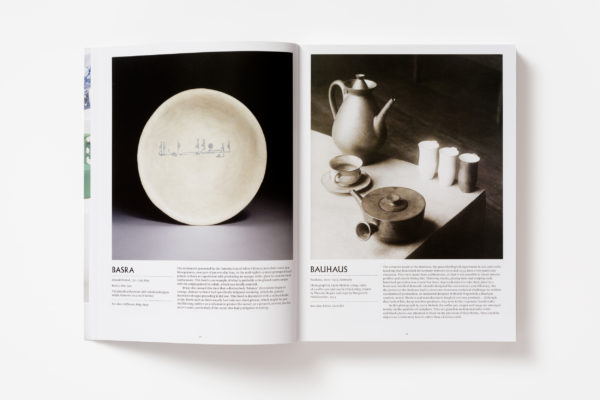
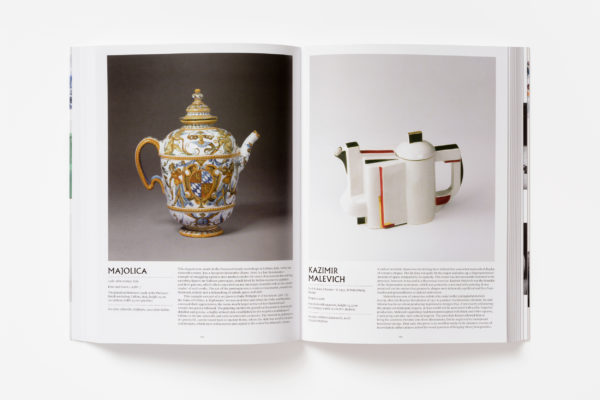
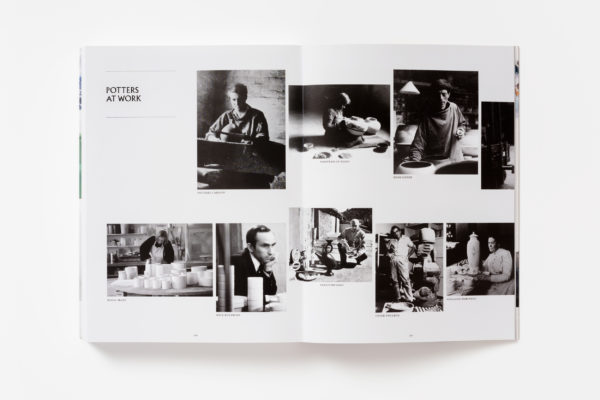
Chatto & Windus, London; Farrar, Straus & Giroux, New York
Edmund de Waal's family memoir, The Hare with Amber Eyes, has won many literary prizes including the RSL Ondaatje Prize and the Costa Biography Award and has been translated into 29 languages.
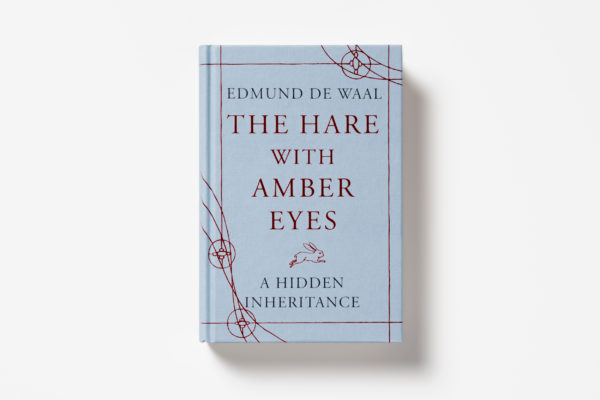
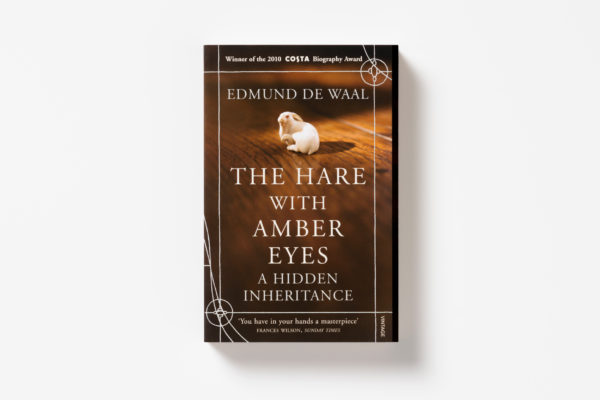
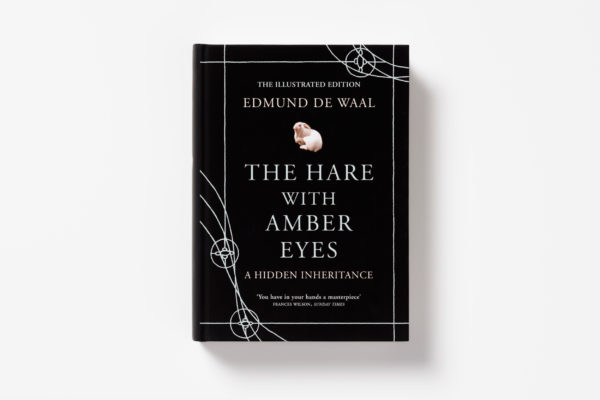
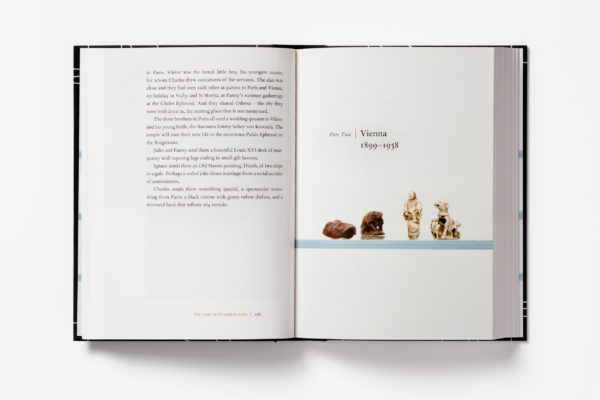
Thames & Hudson, London
This essential introduction to one of the most popular and challenging art forms of our time charts the development of ceramics in the modern age, from Art Nouveau, Art Deco, the Bauhaus and Futurism, through Abstract Expressionism, Pop and Performance, to Land Art and Installation Art. There are clear introductions to pioneering techniques, glazes and approaches, in context and in practice, from orientalism and colour theory, to Modernism, Postmodernism and the profuse diversity of the end of the twentieth century. In it Edmund de Waal examines the increasing cross-fertilization between ceramics and other disciplines, such as painting, sculpture and architecture, and provides detailed and compelling analysis of individual pieces in context.
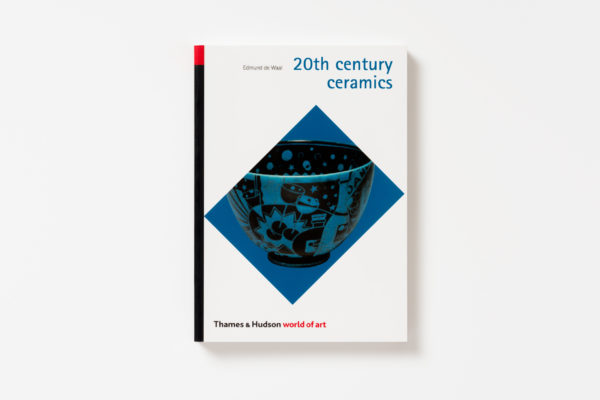
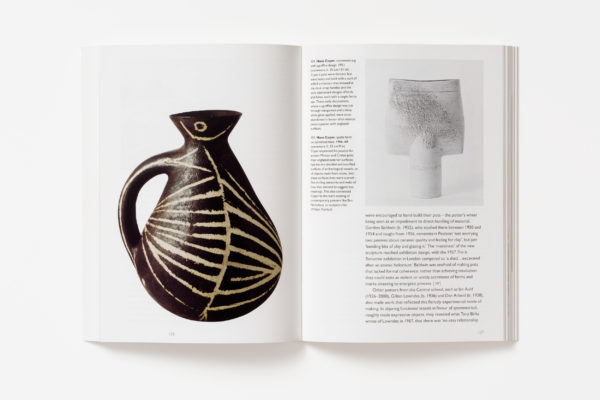
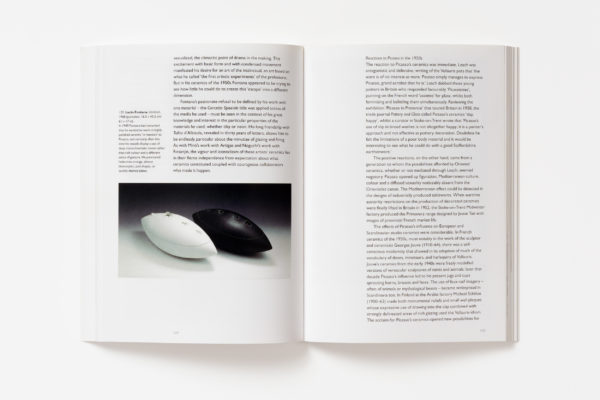
Tate Publishing, London
Bernard Leach was the pre-eminent artist-potter of the last century. This book by Edmund de Waal examining Leach's career includes full colour illustrations of all Leach’s best-known work.
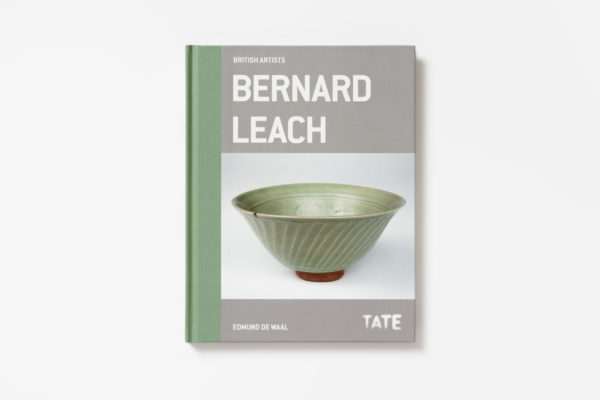
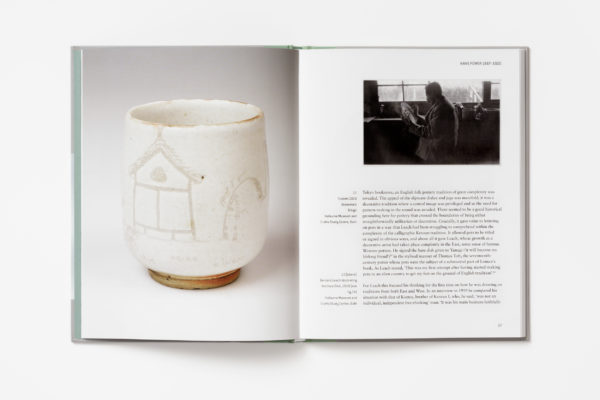
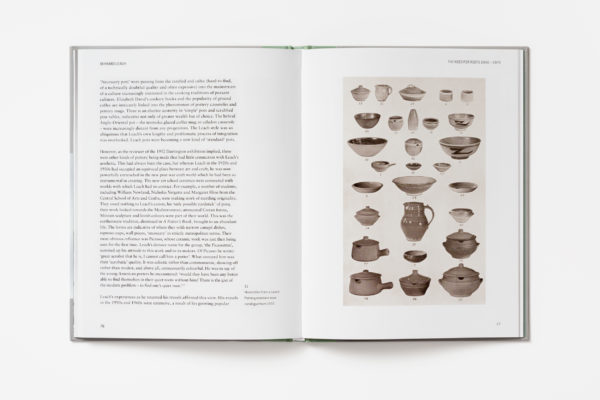
Galerie Max Hetzler, Berlin
Exhibition text for the 2024 installation at Galerie Max Hetzler, Berlin.
Musée Nissim de Camondo, Paris
Catalogue essay from De Waal's exhibition of installations by made especially for its rooms and collections of the Musée Nissim de Camondo, Paris.
MAK Center, West Hollywood
Text which accompanied De Waal's 2018 installation at the Schindler House, Los Angeles.
Museu d’Art Contemporani d’Eivissa, Ibiza
Exhibition text for the 2018 exhibition of the same name at Museu d’Art Contemporani d’Eivissa, Ibiza.
Academy of Arts, Berlin
In 2017, the Academy of Arts in Berlin presented an exhibition examining the relationship between the critic Walter Benjamin (1892–1940) and the writer Bertolt Brecht (1898–1956). The exhibition included a number of contemporary artworks, including de Waal's casualty list from 2017, and this essay about the work appeared in the catalogue.
Kunshistoriches Museum, Vienna
Exhibition catalogue text for Edmund de Waal's curated exhibition, During the Night, at the Kunsthistorisches Museum in Vienna.
Turner Contemporary, Margate
Exhibition text for de Waal's installation at Turner Contemporary, Margate.
Kunsthistoriches Museum, Vienna
Exhibition text to accompany Lichtzwang, a piece made by Edmund de Waal to hang in the Theseus Temple in Vienna as part of a series of contemporary installations. Exhibition text to accompany Lichtzwang, a piece made by Edmund de Waal to hang in the Theseus Temple in Vienna as part of a series of contemporary installations.
Phaidon, London
Edmund de Waal's essay from the monograph published by Phaidon in 2014.
Fitzwilliam Museum, Cambridge
Catalogue text to accompany the exhibition of the same name in which de Waal re-curated displays of the Fitzwilliam Museum's permanent collection with poetry, hidden letters, photographs and objects from his residency in Jingdezhen, China.
University of Cambridge
Text to accompany A local history, a permanent installation of three vitrines filled with porcelain, sunk below the paving outside the Alison Richard Building on the Sidgwick Site of Cambridge University.
Waddesdon Manor, Buckinghamshire
Catalogue text to accompany Edmund de Waal's series of installations at Waddesdon Manor.
Arnolfini / Kettle's Yard
Edmund de Waal's catalogue essay for the 2006 Arnolfini / Kettle's Yard exhibition, Starting at Zero: Black Mountain College 1933-57, on the importance of the Black Mountain College.
Tate Liverpool
Edmund de Waal's essay, Terra Incognita, accompanied Tate Liverpool's 2004 exhibition A Secret History of Clay: From Gauguin to Gormley. The essay has since appeared in reworked form in the catalogue for the exhibition Kneaded Knowledge: The Language of Ceramics at the Universalmuseum Joanneum, Graz, in 2016 and the National Gallery of Prague in 2017.
Artnet
By Eileen Kinsella.
Artist and ceramicist Edmund de Waal is perhaps best known to his fans as the author of the 2010 bestselling book The Hare with Amber Eyes, which also had a dedicated solo show of the same name at the Jewish Museum in New York in 2022.
When de Waal inherited a collection of more than 250 tiny Japanese wood and ivory carvings, known as netsuke, he was curious about who had owned them previously and how the collection had survived. He embarked on a deep dive about both the netsuke and his ancestors, the Ephrussi family, a wealthy banking family who eventually became victims of the Nazis. The tale of how the netsuke were hidden from Nazis in Vienna is a captivating one that is skilfully captured in both the 2010 book and the more recent museum show.
Now de Waal is part of another intriguing and ambitious project, taking on the role of curator and co-artist of a show at Kunstsilo, a just-opened waterfront museum in Norway. Playing with Fire offers a unique presentation of his own works alongside those of the Danish ceramic pioneer Axel Salto. It’s the result of an international collaboration between de Waal, Kunstsilo, and CLAY Museum of Ceramic Art Denmark.
Fædrelandsvennen
By Frida Forsgren. Playing with Fire sets out to be a traditional master meeting. The opening images with portraits of Axel Salto and Edmund de Waal in their studios set such an expectation. Such master meetings can easily become hero portraits. Fortunately, the exhibition instead focuses on play, exploration, and a genuine professional fellowship across two generations. Axel Salto (1889–1961) is Danish and one of the truly interesting artistic personalities of the 20th century. From the ceramic primal form of the pot, he experiments with works featuring knobs, tubers, stems, and foliage. He turns, builds, and sculpts forms that truly burst with joie de vivre and imagination. Simultaneously, he is engaged with antique myths about metamorphosis and transformation, such as the Actaeon myth, where a hunter is transformed into a deer. Salto himself translated texts from antiquity and created beautiful, handmade books.
The Guardian
By Oliver Wainwright. It has folders marked ‘Grasping the victim’s head’ and now – after a £15m revamp and some help from Albert Einstein and the patron saint of the internet – the extraordinary Warburg Institute is letting passersby in to view its ‘books emanating sorcery’
The Art Newspaper
By Gareth Harris. The Warburg Institute in Bloomsbury, a London University institution that houses a unique library smuggled out of Nazi Germany in 1933, hopes to raise its profile with a £14.5m overhaul.
The Times
By Kirsty Lang. The star potter, bestselling author and chair of the Booker prize reveals why he always returns to stories of loss and exile.
The Telegraph
By Jessamy Calkin. While his life is a whirl of exhibitions and book tours, de Waal’s ceramics communicate an almost mystical calm – as does his studio.
Whitehot Magazine
By Gary Ryan. I briefly met and spoke with Sally Mann at the opening of her joint show with Edmund de Waal at Gagosian uptown on Madison Avenue, where she expressed openness toward an interview for Whitehot Magazine. The same evening I also met Putri Tan of Gagosian who had curated the show, who agreed to act as facilitator for said interview. The exhibition of their work is open through October 28th.
The Brooklyn Rail
By Phuong H. Bui. Having followed Edmund de Waal’s work as both a writer and an artist ever since the publication of his memoir The Hare with Amber Eyes: A Hidden Inheritance (2010), and Atemwende, his first exhibition at Gagosian Gallery in 2013, I’ve come to realize how Edmund has managed to maintain a remarkable balance between on one hand the making, and on the other hand the writing.
Monocle
By Carolina Abbott Galvão. For author, artist and master potter Edmund de Waal, creation is a physical experience. “Clay is a gorgeous, messy untamed material,” he says at his office-cum-studio in London. “But so is language. I often think of the pressure between words when I put one next to the other or when I make spaces between them.”
Observer
By Dian Parker. A new exhibition illustrates why the artists were drawn together.
Art Basel
By Theaster Gates, Hanya Yanagihara, and Edmund de Waal. The annual Isamu Noguchi Award recognizes individuals from around the world whose work reflects the ingenuity, creativity, and social consciousness that Isamu Noguchi embodied as a pioneering artist of the 20th century. Marking its tenth year, the 2023 edition is honoring artist and writer Edmund de Waal, artist Theaster Gates, and novelist Hanya Yanagihara. Here, they share how Noguchi’s life and work has personally inspired them. From the courage that Noguchi demonstrated in America during World War II, which Yanagihara highlights, to his instinctive bond with natural materials that led de Waal to seek out Noguchi’s footsteps in Japan, and his knack for shaping public space into sites of communal play that influenced Gates early in his career.
The Architect's Newspaper
By Charles Gebbia. The Noguchi Museum in Queens, New York has announced this year’s recipients of the annual Isamu Noguchi Award: contemporary artist Theaster Gates, author and artist Edmund de Waal, and writer Hanya Yanagihara. Celebrating its 10th year, the annual award recognizes individuals who share in Noguchi’s “spirit of innovation, unbounded imagination, and uncompromising commitment to creativity.”
The Quietus
By Jennifer Lucy Allan. A new show on London’s South Bank brings together big names like Grayson Perry and Edmund de Waal with lesser known ceramic artists, such as Lubna Chowdhary, Salvatore Arancio, and Klara Kristalova.
Financial Times
The Observer
By Laura Cumming. Twenty-three artists explore the potential of this ancient material in works tackling issues from Post-it note wars to feudalism and porn.
The Guardian
By Adrian Searle. This contemporary ceramics show has everything from beautiful pitchers and sexy pots to stupid knick-knacks.
Financial Times
Prospect
By Hella Pick. "I have been making pottery all my life and in terms of identity, who I am and what I do, there is something very straightforward about sitting down at a potter’s wheel with a piece of clay and making something out of it."
The Jewish Chronicle
By Anthea Gerrie. The elegant works are to go on show at Waddesdon Manor, before taking up a permanent home in Israel.
Art & Object
By Howard Halle. Provenance refers to the chronology of ownership for a painting or other valuable, and the process of following custodial clues to establish its bona fides and historical importance. But along the way, provenance also reveals the lives of collectors involved, and the fortunes and fates that cling to the object like so many layers of drawing room dust.
The Washington Post
By Sebastian Smee. I walked into New York’s Jewish Museum late on a Monday afternoon, a few days before the end of 2021. It was dark outside — that cavernous Gotham gloom.
National Review
By Brian T Allen. First published in 2010, Edmund de Waal’s The Hare with Amber Eyes is partly history, partly an art story, partly a family memoir, and partly de Waal’s autobiography. Now this poignant, lyrical book is an exhibition at the Jewish Museum in Manhattan. At its best, the book and the show — probing the rise, fall, and metamorphosis of a Jewish family, the Ephrussis — are about inheritance.
The Brooklyn Rail
By Jason Rosenfield. The Jewish Museum’s present show is a spinoff of The Hare with Amber Eyes: A Hidden Inheritance, the best-selling book from 2010 by the British ceramicist and writer Edmund de Waal, an elegant, erudite, auto-biographical, and equal parts devastating and elevating family memoir.
The New York Times
By Karen Rosenberg. Lovers of Edmund de Waal’s book can get close to that netsuke in a compelling show of objects that endured across a century of violence, discrimination and dispossession.
The New European
By Florence Hallett. After the success of The Hare with Amber Eyes, potter and writer Edmund de Waal returns with an exhibition and book of fictional letters about a journey through grief.
The New Yorker
Japanese netsuke—ivory carvings used as kimono ornaments—are at the heart of both the Edmund de Waal memoir and the show, opening Nov. 19.
The New York Times
By Sophie Haigney. At the Jewish Museum, a book becomes an art exhibition examining the lives of the renowned Ephrussi family.
The New York Times
By Celia McGee. Designing a show at the Jewish Museum in New York has illuminated corners of hidden history in her life, the architect says. “Edmund dug into his past. I didn’t. I couldn’t bear it.”
The Observer
By Killian Fox. The ceramicist and writer on the poetry of Louise Glück, the music of Max Richter and the best secret meeting spot in London.
Times of Israel
By Renee Ghert Zand. UK artist is 1st to showcase work at Musée Nissim de Camondo, which has remained unchanged since its 1936 dedication; he also penned a book of letters to its deceased benefactor.
Hyperallergic
By Hakim Bishara. Curator Edmund de Waal invites visitors to touch the sculptures of Henry Moore, who emphatically believed in the importance of tactile experience in enjoying works of art.
Artlyst
Edmund de Waal has placed Moore’s words ‘tactile experience is very important as an aesthetic dimension in sculpture’ at the heart of his exhibition, which also showcases the iconography of the hand in Moore’s works. The postponement will allow visitors to touch works by the sculptor, as originally planned, not exactly a good idea at present.
The I
By Florence Hallett. In the volumes and contours of Henry Moore’s Reclining Figure: Hand (1979), the traces of countless objects – stones, bones, gnarled wood, sculpture – reveal themselves beneath your fingers. The bronze swells and subsides, sending your arm on a rollercoaster ride, then bringing it to rest at some feature that nestles in the palm of your hand, or invites the touch of outstretched fingers.
New York Times
By Maurice Samuels. Three unwieldy boxes of porcelain collect dust in the basement of my building. Sealed away after my grandmother’s death 30 years ago, they contain rococo lamps, fragile urns and multiple sets of gilt-edged china that can’t go in the dishwasher.
The Australian
By Carmel Bird. As in The Hare With Amber Eyes, the narrator, the reader, and the central character of Camondo are strangely all present, connected and somehow intimate.
The Spectaor
By Laurel Berger. The potter and author Edmund de Waal revisits familiar terrain at an angle in his third book, Letters to Camondo. Ten years after the publication of his debut memoir, The Hare with Amber Eyes, he is once again in Paris, lurking about the rue de Monceau, ruminating on dust, trying to make the dead speak.
The Observer
By Tim Adams. The potter and memoirist’s exacting study of a Parisian family’s collection of art objects is an exquisite coda to The Hare With Amber Eyes.
Art Review
By Oliver Basciano. Restitution and the long shadows of history preoccupy two leading British authors.
The Week
Edmund de Waal pens a unique companion volume to his 2010 bestseller The Hare with Amber Eyes.
The Guardian
By Edmund de Waal. The artist, potter and author on his middle-of-the-night anxiety reading, wanting to be a poet, and the Japanese classic he wishes he had read,
London Review of Books
By Julian Barnes. In 2016, Theresa May told the Conservative Party Conference: ‘If you believe you’re a citizen of the world, you’re a citizen of nowhere. You don’t understand what the very word “citizenship” means.’
Evening Standard
By Ian Thomson. This beautiful book by the author of The Hare with Amber Eyes, about the banking family known as the ‘Rothschilds of the East’ opens a window onto an entire lost world.
The Telegraph
By Rupert Christiansen. The artist returns to the belle époque turf of The Hare with Amber Eyes, this time writing imaginary letters to a Jewish collector in Paris.
The Scotsman
By Allan Massie. Edmund de Waal charts the extraordinary lives of the Jewish Camondo family, who became high society philanthropists in Paris before tragedy and then horror visited them.
The Times Magazine
By Louise Carpenter. Edmund de Waal’s The Hare with Amber Eyes was an international bestseller. During the solitude of lockdown, the celebrated writer and potter found himself returning to his devastating family history and the fate of his Jewish forebears. Louise Carpenter meets him in his studio.
The Guardian
By Nicholas Wroe. From Proust and Parisian riches to the horror of the Holocaust ... this companion study to The Hare With Amber Eyes is the skilfully told story of a family’s collection of art objects.
The Sunday Times
By Johanna Thomas-Corr. Ten years after the release of hus bestselling family memoir, this author returns to fin-de-siècle Paris.
The Economist.
Three books portray a glittering, doomed world.
The Times
By Laura Freeman. The potter and author turns an artist’s eye to the life of a belle époque count.
Financial Times
By Jackie Wullschlager. Two books offer intimate yet contrasting histories of Jewish art collectors in fin-de-siècle and early 20th-century France.
Literary Review
By Gillian Tindall. Edmund de Waal is an internationally known potter, but through investigative energy and a sense of obligation he has also become the chronicler of his Jewish ancestors.
Daily Telegraph
By Chris Harvey. The author and potter talks about life without some of the 'netsuke' that inspired his bestselling memoir The Hare With Amber Eyes.
Financial Times
By William Atkins. A migratory installation explores how the loss of homeland has inspired and encumbered writers.
Evening Standard
By Robert Dex. The Tiger Who Came to Tea has come to the British Museum as part of an artwork dedicated to exiled writers.
The Guardian
By Mark Brown. Artist criticises ‘heartbreaking’ loss of libraries as he opens installation at British Museum.
The Times
By Jack Johnstone. When Edmund de Waal was a struggling young potter he lived for five years in Sheffield, the cheapest city he could find, making and selling ceramic honey jars.
The Guardian
By Edmund de Waal. Before writing his bestselling memoir, the potter and author had not realised that losing the thread of a family was so universal.
Hyperallergic
By Valentina Di Liscia. The artist donated his “library of exile” to the Mosul University Library, once one of the largest libraries in West Asia, housing over a million books and rare historical materials, before it was destroyed.
The I
By Florence Hallett. The artist’s winter pots were made to be handled but are now viewed through the gallery’s window, from the street.
The Times
By Edmund de Waal. My favourite author or book: It has to be the poems of Paul Celan. He was born in Romania and his Jewish family were murdered in the Holocaust.
Financial Times
By Melanie Gerlis. The artists discuss their exhibitions at the New Art Centre near Salisbury, which explore tactility, reflection and horror.
The Telegraph
By Lucy Davies. The Wiltshire sculpture park is a perfect fit for the complex, contrasting work of Edmund de Waal and Jacqueline Poncelet.
Prospect
By Andrew Dickson. In the colonnaded central courtyard at the Frick Collection in New York, Edmund de Waal seems a little agitated. It is morning on an early summer Thursday; gauzy light filters through the glass roof on to the glossy marble floors beneath.
New York Review of Books
By Lisa Appignanesi. The history of Venice’s Jewish Ghetto reverberates through writer and artist Edmund de Waal’s two site-specific installations. They go by the joint name of “Psalm,” those biblical poems and prayers of exile that are core to all three Abrahamic faiths and are haunted both by memories of loss and hopes of refuge, sometimes of retribution.
The Economist
By F.R. Edmund de Waal’s latest installation is a hymn to writers in exile: a porcelain “library” with 2,000 books in translation.
The Art Newspaper
By Gareth Harris. A library housing 2,000 books by exiled writers on show in Venice, assembled by the writer and ceramicist Edmund de Waal, will tour to the British Museum in London and the Japanisches Palais in Dresden.
Financial Times
By Jan Dalley. The ceramicist and writer talks about exile, belonging — and his longtime ‘obsession’ with porcelain.
The Jewish Chronicle
By Keren David. The studio of the British ceramicist and author Edmund de Waal is a large, bright space, a former munitions factory in deepest South London, walls painted in “Homebase white”. We’re here to talk about an utterly different place.
The Guardian
By Edmund de Waal. My day begins in the Campo di Ghetto Nuovo. It is early morning and I am nursing a cup of coffee and the first of my bag of almond dolci ebraici veneziani, still warm from the bakery.
The Guardian
By Judith Mackerell and Lyndsey Winship.
Artforum
By Grant Johnson. Writer and artist Edmund de Waal creates delicate porcelain vessels decisively arranged in meditative metal displays evocative of the conceptual intersection of Minimalist sculpture and modern craft.
Financial Times
By Melanie Gerlis. Major consignments to next month’s bellwether auctions of Impressionist, Modern and contemporary art in New York are mounting up, in expectation and hope of another bumper season (November 11-16).
Artribune
By Giorgia Losio. Kunsthistorisches Museum, Vienna – fino al 29 gennaio 2017. Abbiamo trascorso la notte nel museo austriaco in compagnia dell’artista britannico Edmund de Waal, che ha approfondito il tema della sua mostra, “During the night”, attraverso le reazioni di curatori, scrittori, storici e psicanalisti. Con un intermezzo musicale di Franz Bartolomey, primo violoncello dell’orchestra filarmonica di Vienna.
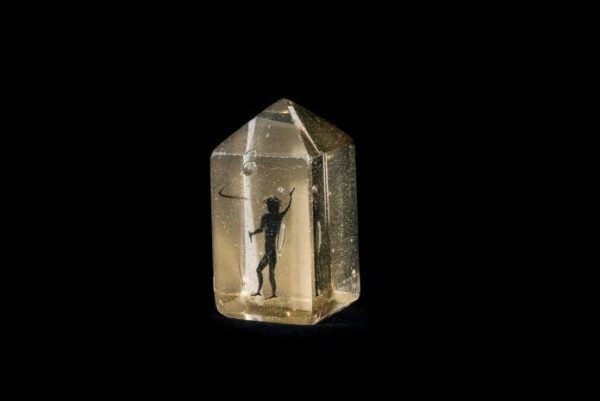
nrc.nl
By Caroline de Gruyter. Voor het kunsthistorisch museum in Wenen stelde kunstenaar/schrijver Edmund de Waal een magnifieke tentoonstelling samen over angst.
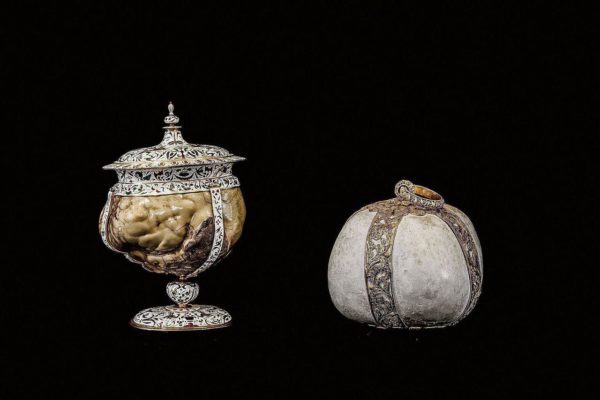
Wiener Zeitung
By Christa Hager. "During the Night": Edmund de Waal presents an extraordinary exhibition on fear at the Kunsthistorisches Museum.
Die Presse
By Almuth Spiegler. Edmund de Waal, Bestsellerautor und Keramikkünstler, erzählte der „Presse am Sonntag“, was er von Kritikern hält. Und warum sein „Hase“ als Talisman über seine KHM-Ausstellung wacht.
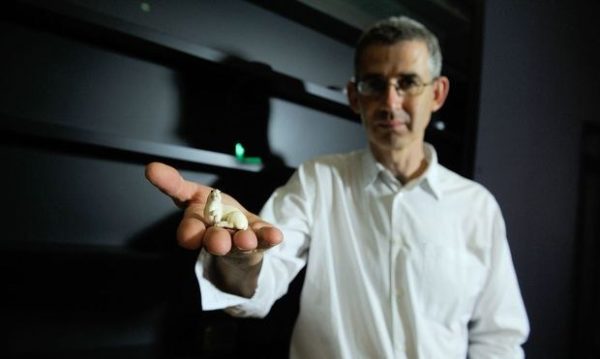
Phaidon
The artists and ceramicists hope their new show will re-establish the medium's rightful place within fine art.
Zeit Online (Die Zeit)
By Tobias Timm. Der Bestsellerautor Edmund de Waal ist auch ein Künstler, jetzt werden seine Werke in Berlin gezeigt. Ein Gespräch über Porzellan und Walter Benjamin.
Weekendasiven
By Heidi Laura. Vi har mistet den fundamentale forbindelse til ting, som går gennem hænderne, mener keramikeren og forfatteren Edmund de Waal. Og derfor også forbindelsen til dem, som laver tingene, og til tingenes dybere historier, smukke som smertefulde.
Panorámica
By Javier Martín. Brillante, fina y traslúcida, la porcelana es sinónimo del lujo venido de Oriente. Desde los primeros comerciantes italianos hasta los intereses de los principales monarcas europeos en su fabricación, la historia del oro blanco puede también leerse como una historia obsesiva por poseerla y elaborarla.
El Pais
By Jorge Morla. Los nazis destinaban leña a fabricarla aunque escaseara para los crematorios y obsesionó a los emperadores chinos. El escritor novela la historia de la porcelana.
La Vanguardia
By Antonio Lozano. Tras el éxito de La liebre con ojos de ámbar, el autor, que también es artesano, se acerca en El oro blanco a uno de los secretos mejor guardados de Oriente.
Huffington Post
By Edward Goldman. This is the story of his encounters with many people and places that help deepen his understanding of the nature of the material.
Wallpaper*
By Michael Slenske. ‘It’s come out of a lengthy period of thinking about architecture and music and all kinds of other things, so it’s a really big show for me.’
Read more at http://www.wallpaper.com/art/b...
San Francisco Chronicle
By David D'Arcy. Much writing is about witnessing. For Edmund de Waal, it is also about holding something in your hands. That something is porcelain, the translucent white pottery that’s obsessed de Waal for his entire life. As a substance, it radiates the purity of something delicate and nearly weightless, seemingly ageless.
New Republic
By James McCauley. Edmund de Waal’s new book is an odyssey into an obsession with porcelain.
Los Angeles Times
By Geoff Nicholson. This is a terrific book. If you read it, you'll never look at porcelain the same way again.
The New York Times Magazine
By Sam Anderson. Coming from a more orthodox mind, de Waal’s stories, and his pots, might have turned out to be dull, dry, obscure, conventional and neatly contained. Instead, they are poetic and sprawling. The White Road is a verbal extension of his lifelong work in ceramics. The writing and the porcelain are inseparable now; they lean on one another like the inside and outside of a pot.
The Wall Street Journal
By Ben Downing. Blending history, biography, autobiography, travel writing and multiple veins of meditation... it is a far cry from your grandmother’s coffee-table book on Lladró.
The Seattle Times
By Brian Thomas Gallagher. In The White Road, Edmund de Waal, author of The Hare with Amber Eyes, chronicles humanity’s passion for porcelain, the fine pottery coveted through the ages by the wealthy and highborn, and his own life as a craftsman who works with the prized material.
Toronto Star
By Jennifer Hunter. De Waal’s book is poetic and has a stream-of-consciousness style as he considers the places and people around the world involved in the creation and use of porcelain.
The New Yorker
By Thessaly La Force. The real story of how porcelain was invented—and then reinvented and reinvented again—is offered up in Edmund de Waal’s new book “The White Road: Journey into an Obsession,” a breathless pilgrimage to, and history of, three very famous white hills.
Times Literary Supplement
By Ruth Guilding. Deeply absorbing and profoundly instructive.
Observer Food Monthly
By Alex Clarke. The book is a great deal more than a history; in it de Waal examines the cost ... of the material so highly prized for its purity that it was thought to banish poison.
The Australian
By Miriam Cosic. The book is immersive and slightly hallucinatory. The text is as incantatory as poetry, a concatenation of places, eras, people, historical writings, physical objects, moods, the present and the past.
Belfast Telegraph
By Brian Lynch. The White Road is not as accessible as The Hare with Amber Eyes, but the thinking that informs it is denser and even more illuminating.
Apollo Magazine
By Anne Gerritsen. The point of this pilgrimage, this white journey, is surely not just to tell us how it is possible to make white things, but to let us hear some of the conversations which are part of the making of porcelain.
The Tablet
By Michael Walsh. I already have it marked down, should anyone ask come December, as my book of the year.
The Economist
This allusive, complex book is a hybrid, neither a simple history, travelogue nor autobiography, but taking in elements of each as the author traces the stories of porcelain's development and his own fascination with those stories
Sunday Express Magazine
By Charlotte Heathcote. You don't want to stop reading because de Waal, with his sharp curator's eye, has excellent judgement when it comes to showing readers things that they will find fascinating, funny or moving.
The Oldie
By Charles Darwent. This [book] tells not one story but two: that of other people... the inventors, makers and consumers of porcelain, and the author's own.
Sunday Express Magazine
By Jack Kerridge. "You don't want to stop reading because de Waal, with his sharp curator's eye, has excellent judgement when it comes to showing readers things that they will find fascinating, funny or moving."
The Spectator
By A.S. Byatt. De Waal's The White Road finds the history of porcelain manufacture shrouded in secrecy and littered with terrible disasters.
The Spectator
By A. S. Byatt. "A.S. Byatt on the dark deadly secrets lurking behind a cool, white surface"
The Times
By Tristram Hunt. This book is certainly the finest account of the many meanings of porcelain to the modern world that I have read.
The Financial Times
By AN Wilson. ...an intensely personal history of porcelain.
The Independent
By Ekow Eshun. A mesmerising and cautionary tale about the obsessive pursuit of white china.
The New Statesman
By Olivia Laing. White is a dangerous colour – and de Waal's journey shows the human cost of porcelain.
Publishers Weekly
The book transforms an otherwise esoteric subject into a truly remarkable story.
The Sunday Times Magazine
By Christina Patterson. The White Road is a cultural history of porcelain, but it's also, as it's subtitle says, "a pilgrimage of sorts"...to the places where porcelain was invented, or reinvented.
Country Life Magazine
By Ysenda Maxtone Graham. Edmund de Waal has a way of making you care about handmade ceramics in a way no other writer does.
Monocle
By Robert Bound. ...intriguing, unusual, heartfelt...
Kirkus Reviews
A lyrical melding of art history, memoir, and philosophical meditation.
La Vanguardia Magazine
By Xavi Ayen. El ceramista británico Edmund de Waal heredó de un tío suyo 264 netsukes, unas delicadas miniaturas japonesas. ¿Qué habrán visto desde que fueron creadas?, se preguntó.
Welt am Sonntag
By Thomas Schmid. Mit seiner Familiensaga "Der Hase mit den Bernsteinaugen" schrieb Edmund de Waal einen unverhofften Bestseller. Doch seine wahre Leidenschaft ist das Töpfern. Ein Portrait.
The New York Times
By Roger Cohen. The odyssey of 264 netsuke — Japanese carvings not much larger than cherry tomatoes — lies at the heart of Edmund de Waal’s extraordinary book The Hare with Amber Eyes.
The Sunday Times
By Ed Caesar. The Ephrussi family patronised Renoir and Proust, but lost everything in the war. Now their descendant has turned their story into a surprise bestseller.
New York Review of Books
By Walter Kaiser. In the unexpected book he has now written about his ancestors, The Hare with Amber Eyes, de Waal’s artistic sensibility and historical empathy are as animating as they are in his ceramic craft.
The Washington Post
By Michael Dirda. The Hare With Amber Eyes belongs on the same shelf with Vladimir Nabokov's Speak, Memory, André Aciman's Out of Egypt and Sybille Bedford's A Legacy. All four are wistful cantos of mutability, depictions of how even the lofty, beautiful and fabulously wealthy can crack and shatter as easily as Fabergé glass or Meissen porcelain -- or, sometimes, be as tough and enduring as netsuke, those little Japanese figurines carved out of ivory or boxwood.
The Boston Globe
By Richard Eder. At a deeper level, though, Hare is about something more, just as Marcel Proust’s masterpiece was about something more than the trappings of high society. As withRemembrance of Things Past, it uses the grandeur to light up interior matters: aspirations, passions, their passing; all in a duel, and a duet, of elegy and irony.
The New York Times
12 August 2010By Eve M. Kahn. The rows of netsuke have influenced his ceramic work; he often groups his pots by color and size on museum and gallery shelves, like minimalist repeating brushstrokes. Viewers who know about his inheritance, he said, have told him: “Diasporic objects! You’re keeping your objects together, aren’t you?”
The Sunday Telegraph
By Brian Dillon. The ultimate message of his engrossing book is a profound one, however: that our lives are made and unmade in the company of things. “Touch tells you what you need to know – it tells you about yourself.”
The Guardian
By Veronica Horwell. De Waal has a mystical ability to so inhabit the long-gone moment as to seem to suspend inexorable history, personal and impersonal.